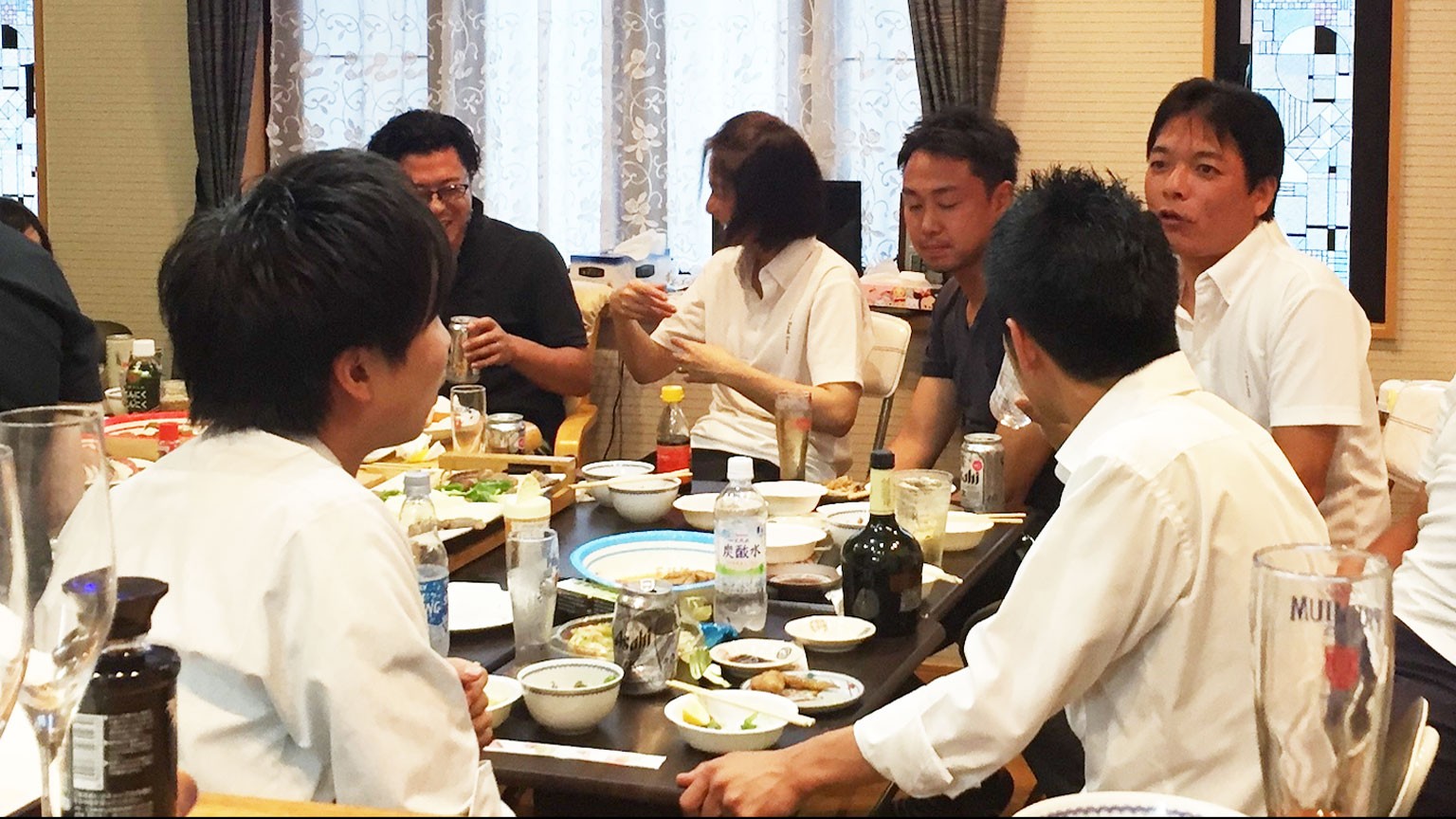A troubling invitation
A Tokyo office worker in his 40s says he did not know how to respond to an internal email invitation he received in November. Its subject was "Announcement of 'Non-business' Year-End Party".
The invitation was a mass email to everyone in the department. The man tells NHK World he felt uncomfortable with the notation "non-business."
"I am wondering why the company insists on a year-end party but describes it like that."
The man, a reluctant participant, explains: "I've stopped drinking alcohol now. Why can't we just individually decide if we want to go?"
Expectations for overtime
For many firms, this year's party season will be the first large social gathering since the start of the pandemic, but discussions on social networking sites suggest that not everyone is excited for their return.
"Why do we have to participate and get our boss in a good mood?" asks one worker. Another says: "Why do I have to join an all-night year-end party in this day and age? I wish they would pay overtime."
The question of overtime pay for year-end parties is a recurring theme.
Workplace attitudes
Some workers have raised that question directly with management. Kubota Shinpei, a labor and social security attorney who works with small- and medium-sized companies, says he is regularly consulted by bewildered managers and supervisors about employees' expectations.
The following Q&A covers many of the issues he gets asked about:

Q. Is a year-end party considered work?
A. If a company forces an employee to attend a year-end party, or if the company says that he or she will be disadvantaged if he or she does not attend, it is considered working hours, and the employee is entitled to a salary and overtime wages to cover the event.
Q. What does it mean to be forced to take part?
A. If someone in a higher position says, "You should participate," it can be regarded as a company instruction. In a small or medium-sized firm, this could come from the president, a management executive, a supervisor, or a senior staff member. Also, if the invitation is extended along with words like, "Everyone else is participating," that strengthens the impression of forced participation. Even if it does not appear to be a direct order, attendance can be perceived as company business.
Q. What constitutes a disadvantage?
A. Disadvantage can mean a penalty for non-attendance. An example is if an employee is told that his or her salary will be reduced if they do not participate, or if it is implied that participation is or may be related to his or her evaluation.
Q. How are working hours defined?
A. According to court precedents, work hours are considered "time under the direction and order" of an employer or operator. If a superior directs an employee to attend a work year-end party that also includes business partners, it is reasonable to consider that as working hours.
Unless an employee has the freedom to refuse, there may be situations where it is difficult to separate work time and personal time, in which case a company needs to tread carefully, including the manner in which an invitation is issued.
Q. What should workers do if they have a problem with an invitation?
A. Even if they do not mean to offend, asking questions such as: "Is it business? Will overtime be paid?" may make it difficult to maintain relationships with co-workers. It would be safer to make an excuse about a commitment outside work.
Q. How do attitudes vary between generations?
A. Some people in their 40s to 60s think it is important to bond with co-workers by going out together and drinking alcohol. But among the younger generation, there are more who say they value their private life, or don't like to go out drinking.
With an increasing emphasis on work-life balance and the elimination of gatherings during the pandemic, it is not necessarily the norm to have work parties anymore. With that in mind, I think it is important to invite people in such a way that it does not become a mandatory event. Employers can create a welcoming atmosphere that makes people want to go.
Workday parties
Some companies are dealing with the challenge by hosting parties during the workday.
Sanyou Real Estate, in Fukuyama City, Hiroshima Prefecture, has 11 employees, seven of whom are women. Some are raising children or looking after elderly parents and can only work limited hours.

"We decided to hold the party during the daytime to make it more comfortable for our employees, in accordance with their daily living situations," says the company's vice president, Tsunoda Chizuru.

Tsunoda says holding the year-end party during working hours ensures that employees can participate, and creates a sense of workplace unity.

"If we hold it at night outside of working hours, there is some concern about overtime payments and the time that the event will end. I am also raising children, and I think it's easier for everyone if we hold the party during working hours with pay," she explains.
Sanyou Real Estate employees are looking forward to their first post-pandemic year-end party at a restaurant during December.

